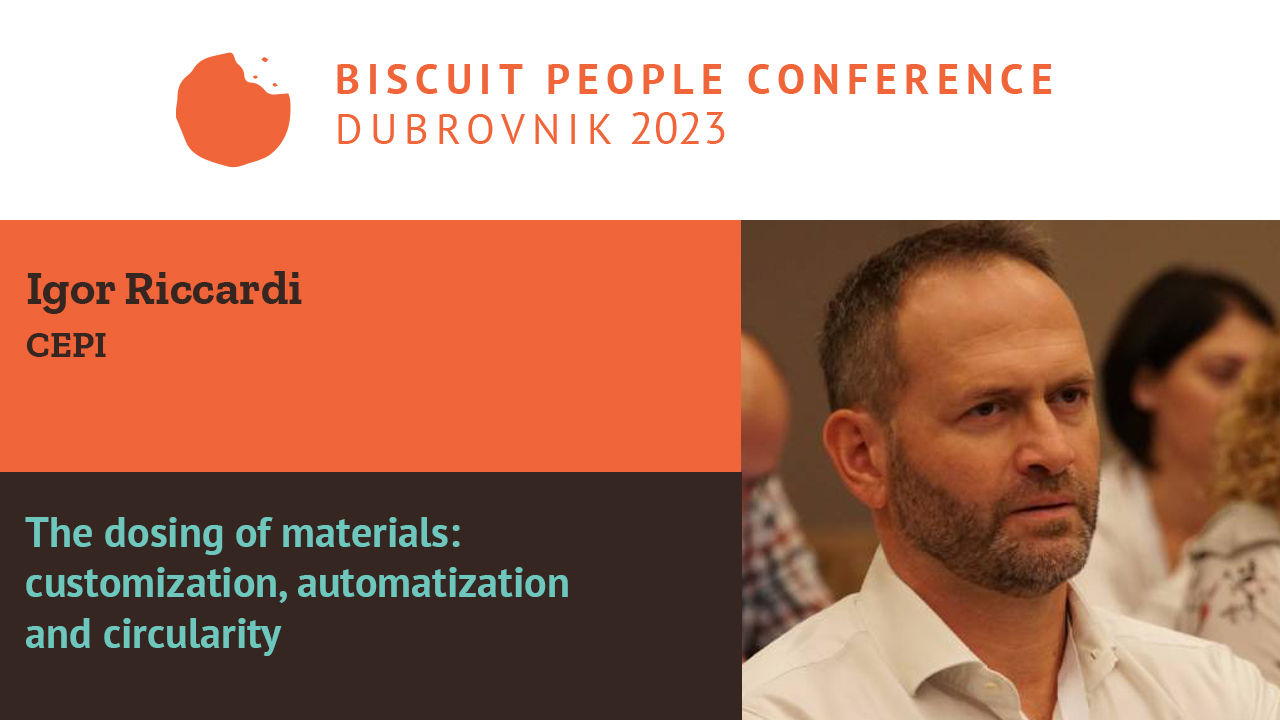Igor Riccardi came from Italy to present us the method CEPI developed through three decades of experience in designing dosing systems that match a thorough analysis of each food manufacturer’s materials, processes, site, environment, and consumptions. The discussion touched on all related issues such as automation and material tracking, research and food technology processes, and turnkey.
Igor Riccardi’s presentation titled “The dosing of materials: customization, automatization, and circularity” focuses on the importance of efficient dosing systems in the food industry, particularly in the production of baked goods.
The presentation begins by discussing the challenges faced by the food industry, including increasing demand for custom products, the need for greater efficiency, and the growing pressure to reduce waste and operate sustainably. To meet these challenges, Riccardi suggests that the industry needs to adopt new dosing technologies that are more efficient and flexible.
One of the key advantages of dosing systems is that they can be fully automated, reducing the need for manual labor and minimizing the risk of errors. Riccardi discusses the different types of dosing systems available.
Riccardi also emphasizes the importance of sustainability in the food industry, highlighting the role that dosing systems can play in reducing waste and improving the circularity of production processes. By using automated dosing systems, manufacturers can minimize overproduction and reduce the amount of ingredients that go to waste.
Riccardi emphasizes the need for an organic view of production that takes into account all aspects of the supply chain, from raw materials to finished products.
He highlights the benefits of turnkey solutions for dosing and automation, which can improve efficiency and reduce costs. The design of dosing systems is also crucial, as it can affect accuracy and reliability. Riccardi emphasizes the importance of choosing the right dosing system for the specific needs of the production line, taking into account factors such as the type of product being produced, and the desired level of automation.
Automation is a key theme throughout the presentation, as Riccardi highlights the benefits of using automated dosing systems, including increased accuracy, speed, and reliability. He also discusses the role of quality control in dosing, emphasizing the need for real-time monitoring and control to ensure consistent and accurate dosing.
Circularity is another important theme in the presentation, as Riccardi discusses the need for sustainable and circular production practices.
The presentation provides a comprehensive overview of the dosing of materials in the food industry, emphasizing the importance of bulk handling, an organic view of production, turnkey solutions, design, automation, and quality control.
If you’re involved in the food industry and interested in improving the efficiency and sustainability of your production processes, you won’t want to miss out on this presentation by Igor Riccardi. This presentation covers a range of important topics, including dosing technology, automation, customization, circularity, and sustainability. By downloading and studying this presentation, you’ll gain valuable insights into how you can optimize your own production processes, reduce waste, and improve your bottom line.
So if you’re ready to take your food production to the next level and learn about the latest dosing technologies and trends, don’t hesitate to download Igor Riccardi’s presentation.

